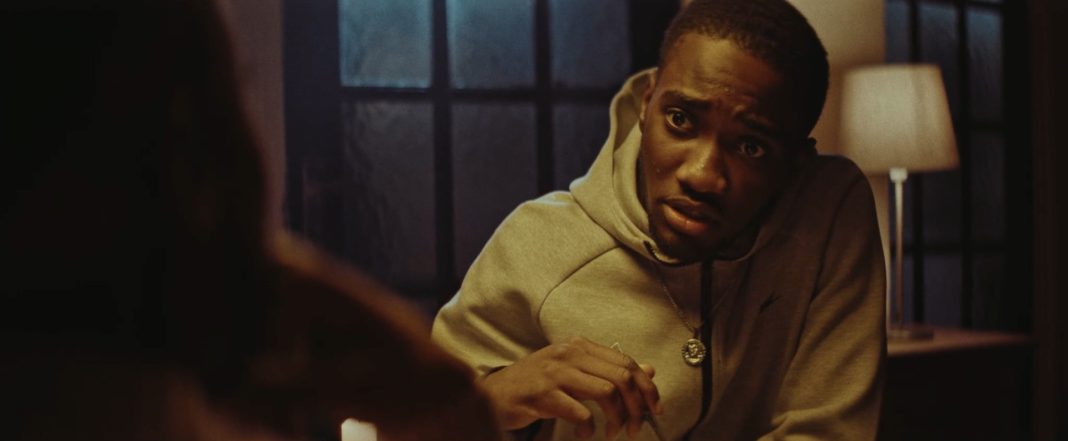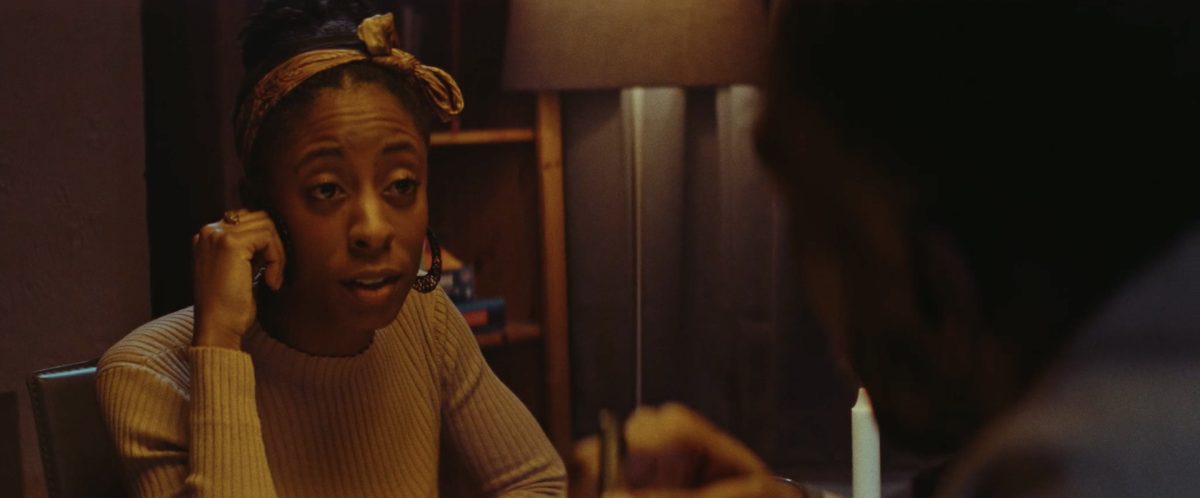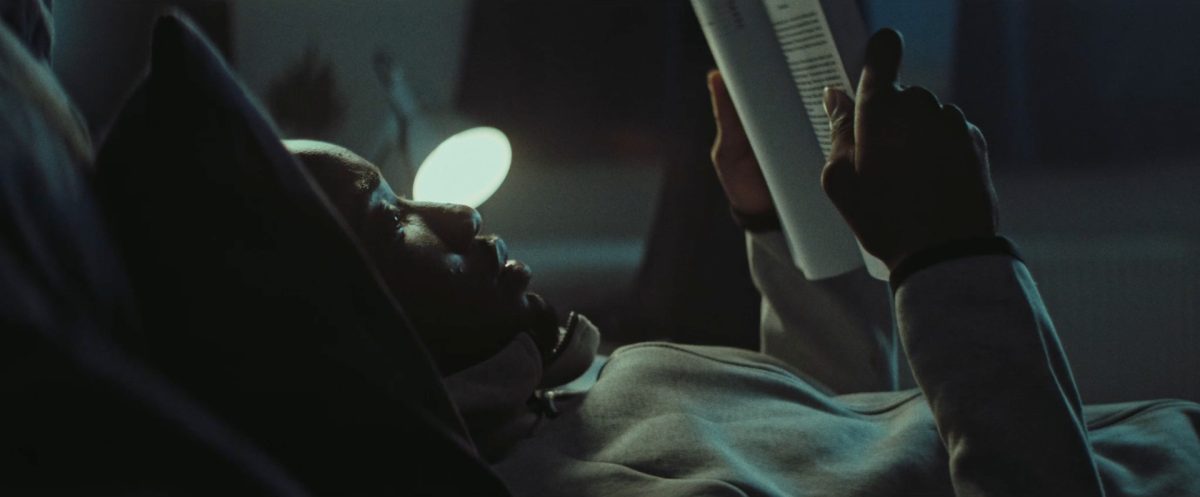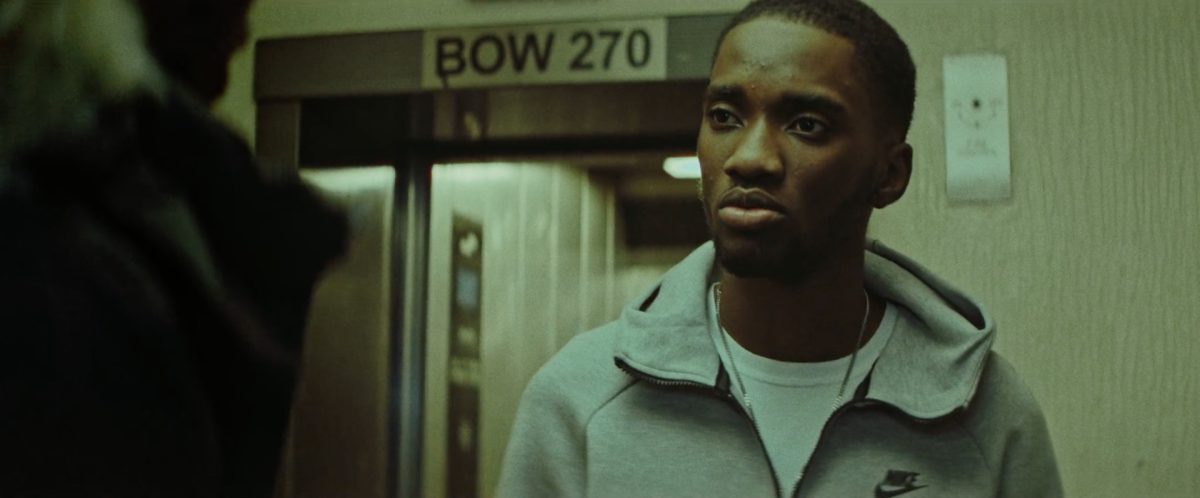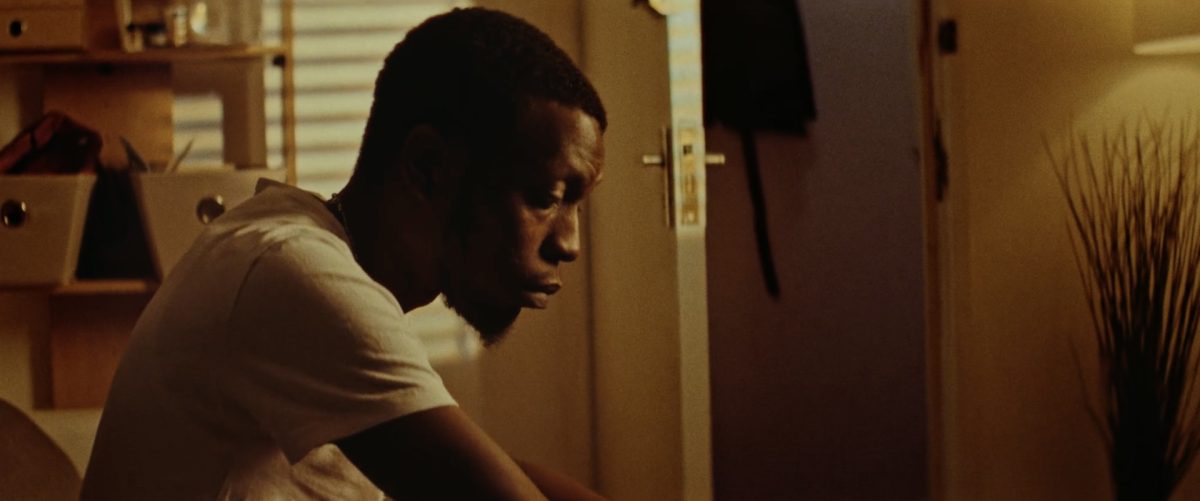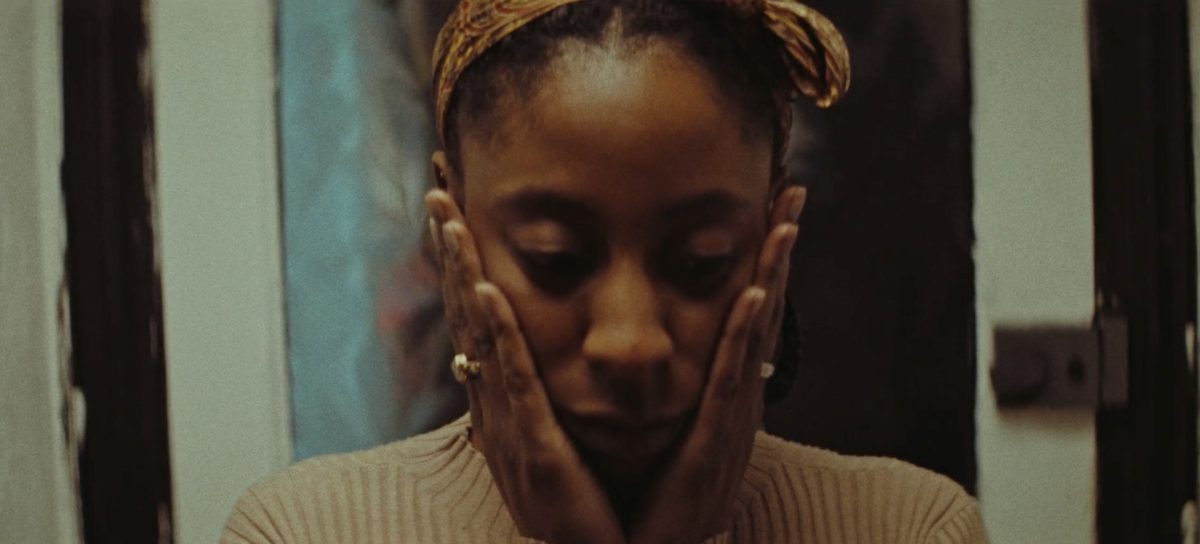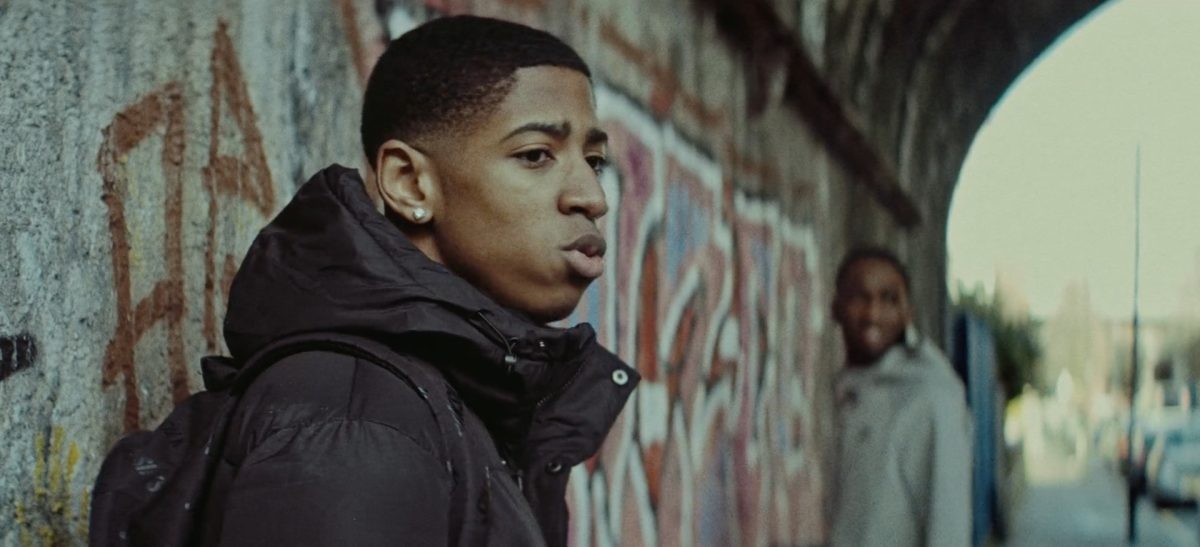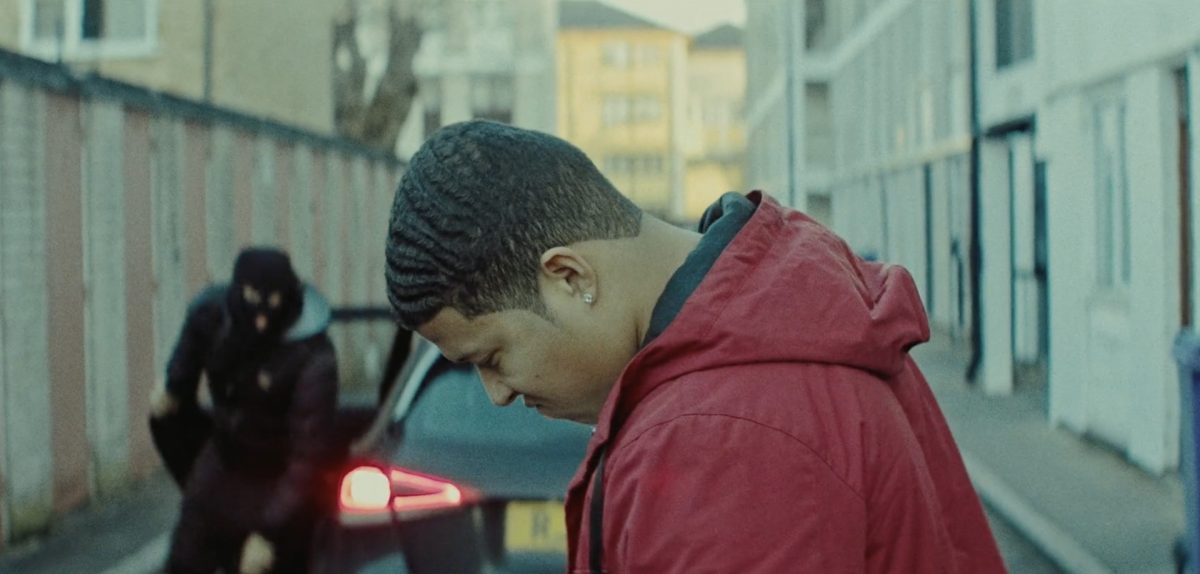Kiosa Sukami taps into traditional perspectives about diversity and urban mindsets with his short film A LETTER TO BLACK MEN.
Film And TV Now spoke with the film-maker about the short.
FILM AND TV NOW: This film represents a more moral viewpoint. What was the catalyst to make this film?
KIOSA SUKAMI: I ultimately wrote this film to be for Black men. I did however also want the film to be an opportunity for anyone else who has trouble understanding us to look into this world the way I was seeing it.
It is a personal social commentary film that looks to shine a light and address some of the negative aspects of men in our community; from the Darwinian ‘survival of the fittest’ attitude to non-existent father figures, delivered in an entertaining way without glamorising the culture.
FTVN: What have been the most important life lessons that you have learned over the years?
KS: The importance of education. Education comes in many ways but you should never stop learning. Whether it is a new skill or simply reading, I believe education is key.
FTVN: Tell us about your cast.
KS: Our lead character, Black, is played by Baba Oyejide. He is best known for his role as Ricky in the Netflix hit series ‘Top Boy‘ and ‘High And Dry’ for Channel 4.
Since first treading the boards with Intermission Youth Theatre in 2012, he has gone on to work extensively on both stage and screen. He is also a writer, having co-wrote and starred in his first short film ‘Conny Fellas’, which has been selected to screen at the BAFTA & BIFA qualifying British Urban Film festival in 2022.
His co-star, Kevin, is played by Jesse Lihau. Jesse was inspired and motivated to take his acting career seriously in 2019 when he managed to land his first stage role in a theatre production called ‘Bullet Tongue Reloaded’ with The Big House Theatre, which was nominated for an Offie award. He later trained at Identity Drama School & is now currently training at UNSEEN Drama.
Kelsie is played by Lynsey Murrell, an Actress and Voiceover Artist working across film, theatre and television. She trained at the Royal Central School of Speech and Drama and LAMDA.
Her recent work includes roles within TV series EastEnders, as well as independent shorts and features such as Sweet Little Despair (BFI) and PMS, both selects in several film festivals. Lynsey’s current work includes doing motion capture and voice over work for key characters within video games and animations such as Baldurs Gate III, Sherlock Holmes Chapter 1 and the Warhammer series.
Playing Kevin’s best friend Leon is Ashley Durant. Ashley’s first was ‘Nick’ in the web series “FOUR”, released in 2018 on YouTube, hitting over a million views. It also went on to win an award in 2020 for the most ‘Favourite Web Series Ensemble’ from Screen Nation as well as screening on television channel ‘YangaTV’.
FTVN: Tell us about your production team.
KS: The film was written and directed by me, Kiosa Sukami. I am a British-Congolese BIFA long-listed Writer & Director from London, known for my cinematic realism approach to film-making.
I attended the Bournemouth Film School and my graduation film based on police brutality “LONGFIELD DRIVE“, starring Chance Perdomo (Chilling Adventures of Sabrina), Harry Eden (Oliver Twist) and Khali Best (Blue Story), was screened in competition at the London Short Film Festival and the Festival du Cinéma Européen in Lille, France.
It went on to premiere online via the UK’s leading platform for urban entertainment, GRM Daily. My follow-up short film “YOLK“, screened in competition at BAFTA accredited British Urban Film Festival and Bolton Film Festival. It premiered online on one of the fastest-growing independent youth platforms for film in the UK, Million Youth Media, where it achieved over 35,000 views.
Cinematography was by Miguel Carmenes, a Director of Photography hailing from Ecuador, with a background in studio photography and photo surrealism.
Miguel was able to experiment with lighting and cameras early on as a teenager, winning multiple awards and having his work shown in magazine covers as well as galleries. He moved to the UK in 2017, where he is now represented by Independent Talent and has two feature film projects in the pipeline.
He has been working in many UK productions including commercials and music videos for artists such as KSI, Burna Boy, Jnr Choi and New Hope Club.
My First Assistant Director is Laurelle Jones, who is a Producer and Director that began her career as a writer back in 2013, with her first short film ‘No.27‘.
She went on to produce numerous projects including ‘Lia’ (2014), which won numerous awards and screened in eleven festivals globally before premiering on US television network Aspire in 2017.
She became the Festival Coordinator for the first ever (and only) UK festival for Black Women and Women of Colour, ‘Women of The Lens’. Her credits include working with artists such as Davido, Wes Nelson, Focalistic and Ayo Beatz. She is currently working as a TV Producer at broadcast network TBNUK.
FTVN: Where did you shoot and for how long?
KS: We shot most of the film in 3 days around London, specifically the East End in areas such as Tower Hamlets and Hackney. We also used our Art Director’s house in North London for about 4 scenes – bedroom, drug den, kitchen and dining.
FTVN: Who and what are your key cinematic influences?
KS: Specific to this film, one of my influences was the 1999 film Kids by Larry Clark. It had a significant impact on me due to its very grounded approach of being shot in a semi-documentary style with inexperienced actors. The film chronicles a single day in the life of young people and these same two elements can be said about A Letter To Black Men.
I wanted to write about the people I knew growing up in London but portray them in the same authentic way I felt Clark had managed to for his characters, with real world problems. I always felt the media I was consuming were doing these characters a disservice.
When we see or hear about Black men from these ‘urban’ areas in the media, there is a constant narrative of misery. Whether it is in the news, movies or tv shows, the portrayal of Black characters always felt one, maybe two-dimensional.
Oftentimes these characters are fictional but written by people who could not relate to them if they existed and subsequently, they never seem to teach me anything or show any personal growth throughout the story. I started looking around my surroundings for characters who I understood and could relate to and the rest was history.
FTVN: Would you like to expand on the issues and themes explored in this short into a feature idea?
KS: There are a few different matters explored in the film but I want to mainly highlight:
Survival Culture – As a young Black man, I found myself often dealing with my immediate needs over my long-term needs.
Kevin is influenced by his best friend Leon to get into a life of crime for quick monetary gain, not realising the long-term effects of going to prison. Survival of the fittest mentality breeds people who riot rather than plan progressive change or revolution.
There are many instances in the film where characters have the opportunity to solve their issues through conversation but it does not always go right.
The Black Family – Although Black people are closing the generational wealth gap, we are still lagging far behind the significant head start our white counterparts have had.
I wanted to emphasise the importance of building and maintaining strong family units in building better generations. There are a significant number of single parent Black households, mainly due to the absence of the father.
Not every single parent household comes about in the same way, as shown in the film, but the same cannot be said for the long term effects of being raised by 1 parent.
Gangs – Violence within the black community and where it stems from: i.e. lack of opportunities, resources and mentors/figures who are capable of nurturing young people.
Kevin has artistic skills but he spends it tagging walls, so Black gives Kevin a blank canvas as an alternative creative outlet. County lines and grooming play a part in the cycle of gang life, which I myself witnessed growing up.
In the film, Kevin is being recruited under peer-pressure to work with a local drug dealer.
Religion – Faith plays a strong part in the black community. I was raised in a religious household and I went to church every Sunday until about 17. By then I had matured enough to learn right from wrong and I strongly believe without this guidance I may have made a lot of stupid choices. In the film, Kevin and Black are seen to be wearing a pendant of St Christopher, the patron saint of travellers. There is a further meaning to this but I will let keen audiences look into that themselves.
FTVN: What issues and themes are you keen to explore in future works?
KS: I am influenced by directors such as Spike Lee for his realistic subject matter, characters and worlds so I think it will likely be more works that comment on society how I see it.
FTVN: Your style is cinematic realism. What successful films have always impressed you in this style?
KS: I was drawn to cinema verite, particularly when studying the works of John Cassavetes (Faces 1968, A Woman Under The Influence 1974).
He was particularly known for creating a comfortable and informal environment to freely experiment, with emphasis on rejection of the director’s ‘singular vision’. I wanted to allow my actors to interpret characters in their own way and we often replaced words during rehearsals based on the results of performance or because it just sounded better.
Although the film is scripted, I wanted the performances to not feel like they were. I improv with actors during rehearsals, which consist of sensory details of circumstances in order to provoke an organic, subconscious performance. Conversations come across more naturally when you give actors a safe space to learn to react to each other as they would naturally without the constraints of a script.
FTVN: How has the festival circuit helped your film?
KS: It has helped get the film seen by more people than I could have imagined.
A mixture of young people who have appreciated the message and education the film provides but also industry professionals seeking new voices. We’re approaching the end of our festival circuit so who knows what else is in the pipeline!
FTVN: Finally, what are you most proud of about this short?
KS: I’m a big fan of long takes in my films so there were 2 shots that were purely Steadicam.
I studied drama when I was younger and I really enjoyed the way stage directors would block the movement in a scene. I try to bring this into my work because it feels a lot more immersive when actors can hold the audience’s attention for 2 minutes without them realising we haven’t cut.
I also like the feeling you get when something big happens after a really long take and you realise the actors knew it was coming the whole time.


